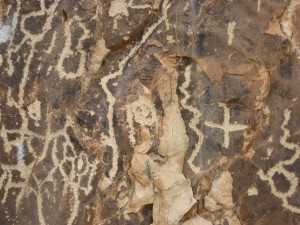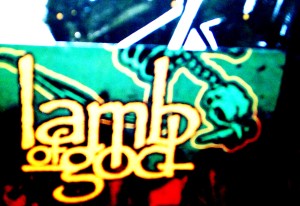
I don’t know and that is not what this blog is really about anyway. Instead, I would like to address the issue of evolution. I should have entitled this entry “What do I believe about evolution?” but thought this more catchy. Maybe a few people will wonder over as they search google for the answers to life’s questions…
In the beginning, God created the heavens and the earth. So begins the truthful Scriptures which God inspired as an authoritative guide to the orthodox faith. In accordance with God’s word, we believe that God created the world and all of its creatures. This is made clear in many other passages:
· Job 38:4-7 Where were you when I laid the foundation of the earth? Tell me, if you have understanding. 5Who determined its measurements—surely you know! Or who stretched the line upon it? 6On what were its bases sunk, or who laid its cornerstone, 7when the morning stars sang together and all the sons of God shouted for joy?
· Psalm 33:6 By the word of the LORD the heavens were made, and by the breath of his mouth all their host.
· Isaiah 42:5 Thus says God, the LORD, who created the heavens and stretched them out,
who spread out the earth and what comes from it, who gives breath to the people on it
and spirit to those who walk in it…
· Isaiah 45:18 For thus says the LORD, who created the heavens (he is God!), who formed the earth and made it (he established it; he did not create it empty, he formed it to be inhabited!): “I am the LORD, and there is no other…”
· John 1:1-3 In the beginning was the Word, and the Word was with God, and the Word was God. 2He was in the beginning with God. 3All things were made through him, and without him was not any thing made that was made.
· Acts 17:24-25 The God who made the world and everything in it, being Lord of heaven and earth, does not live in temples made by man, 25nor is he served by human hands, as though he needed anything, since he himself gives to all mankind life and breath and everything.
· Colossians 1:16 For by him all things were created, in heaven and on earth, visible and invisible, whether thrones or dominions or rulers or authorities—all things were created through him and for him.
· Hebrews 11:3 By faith we understand that the universe was created by the word of God, so that what is seen was not made out of things that are visible.
· Revelation 4:11 “Worthy are you, our Lord and God, to receive glory and honor and power, for you created all things, and by your will they existed and were created.”
One of the unfortunate consequences of the 20th century fight with liberalism was the tendency of many fundamentalists to cling too tightly to non-fundamentals, such that essential truths became diluted. For example, creationism as a belief became associated only with “new earth” proponents who taught a literal 24-hour day creation account. Therefore, faithful brothers and sisters who loved the Lord and His Scriptures, but held to an interpretation of the “days” of Genesis 1 as being possibly longer than 24 hours, were deemed to be liberals and thus opposed at all costs. In addition, any interpretations which included recognition of literary devices such as poetry in the creation account were judged to be outside the boundaries of orthodox Christian thought.
For the sake of simplicity, below are the tenets of the creation/evolution debate which we find to be most representative of a faithful interpretation of the Scriptures. Each of these is based upon the underlying assumption (which we do not have adequate space to here explain) that the Scriptures are true. This is the case even if one views Genesis 1-3 as poetic, as poetry is not antithetical to truth or accuracy. For example, roses truly are red and sugar really is sweet.
1. God created the world.
What is essential here is that the triune Creator created all creation. Historic orthodoxy has stated that creation was ex nihilo which is Latin for “out of nothing” meaning that God did not use that which previously existed in His creation of the world, but rather that all creation came into being through His word.
What is peripheral to this belief is the issue of 24-hour days and the consequent age of the earth. The Hebrew yom which is translated as “day” in most English versions of the Bible often refers to a distinct 24-hour day, but also frequently applies to any certain period of time. What is therefore critical is not that we teach that God created the earth in 6 (the 7th being a day of rest) distinct 24 hour periods, but rather that He created the earth in 6 yoms.
2. God created one man and from that one man created one woman. All humanity is therefore descended from this man and woman.
This belief closes the door on macroevolution, which teaches that all life forms, including humans, share a common ancestor. The Scriptures are clear in the teaching of the unique creation of “Adam” and “Eve” (Genesis 2) and that all humanity is descended from them. Acts 17:26 says, “And he made from one man every nation of mankind to live on all the face of the earth, having determined allotted periods and the boundaries of their dwelling place…” This belief is critical within the Christian account of the fall and subsequent doctrine of original sin and has great soteriological (the study of salvation) connotations as the universal relationship of all humanity under Adam is pictured along with the specific relationship of the Church under Christ in such passages as Romans 5:12-21. In addition, this understanding of the historicity of Adam and Eve is crucial to a proper understanding of the uniqueness of humanity as distinct image bearers of the Creator (Genesis 1:27, 9:6, etc.).
While macroevolution is outside of the boundaries of the Scriptures, there is much room for microevolution which is evolution within a certain species. For example, many species have grown larger or smaller in relationship to their changing environments. Such adaptation within a distinct species is in no way antithetical to the Christian faith and its Scriptures. For this reason, when someone asks a Christian whether or not he or she believes in “evolution,” the ambiguity of such a term should lead one to seek clarification as to what type is being referenced.
For a really good resource on answering culture’s questions about the relationship between the Scriptures and science, see the relevant chapter in Tim Keller’s The Reason for God.
In addition, here are some helpful resources on the topic of “Science” as recommended by Desiring God Ministries:
- Darwin’s Black Box (Behe)
- Intelligent Design (Dembski)
- The Soul of Science (Percy)
- Darwin on Trial (Johnson)
- Life is a Miracle (Berry)
- A History of Nearly Everything (Bryson)
- Redeeming Science (Poythress)





